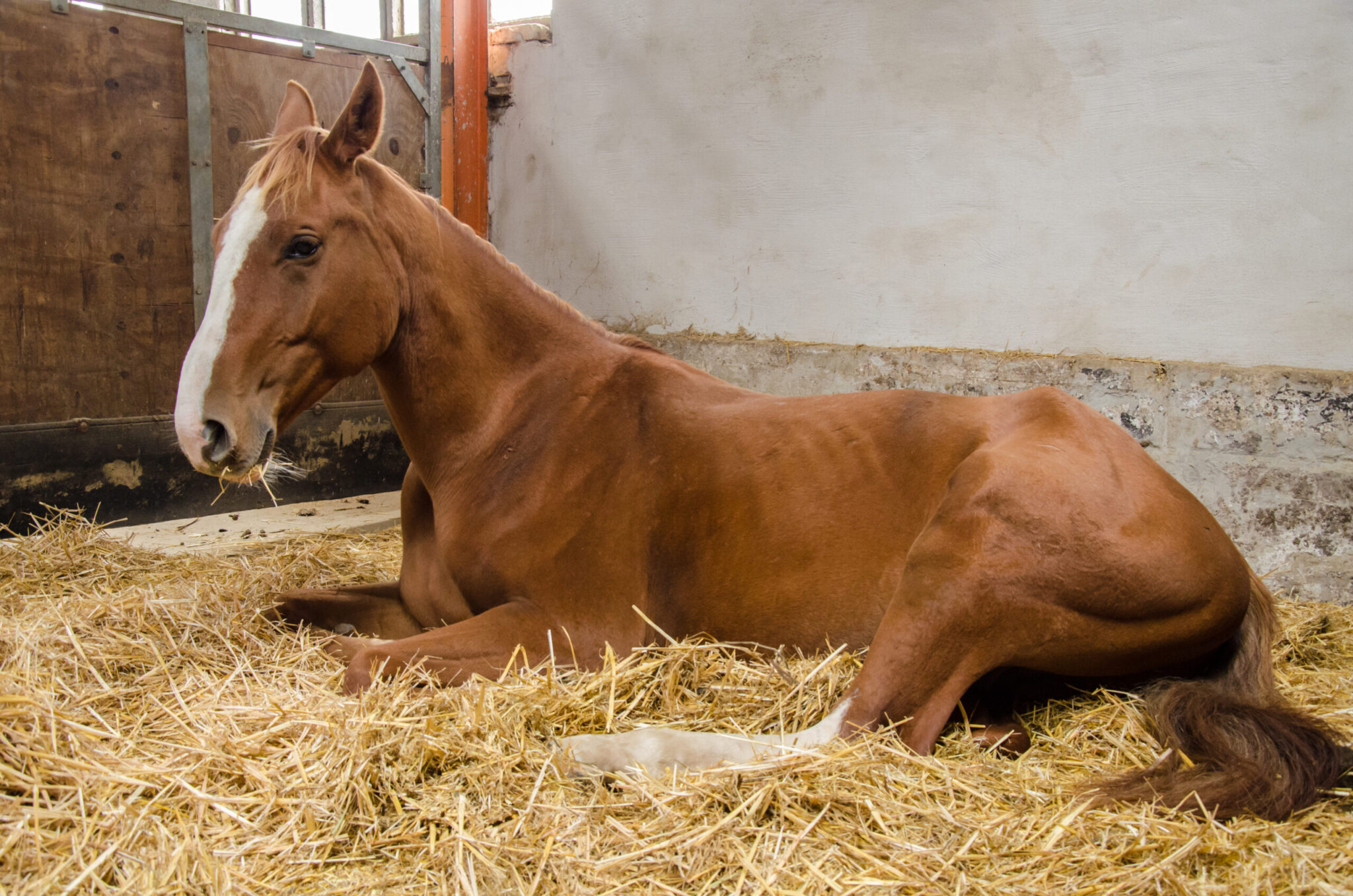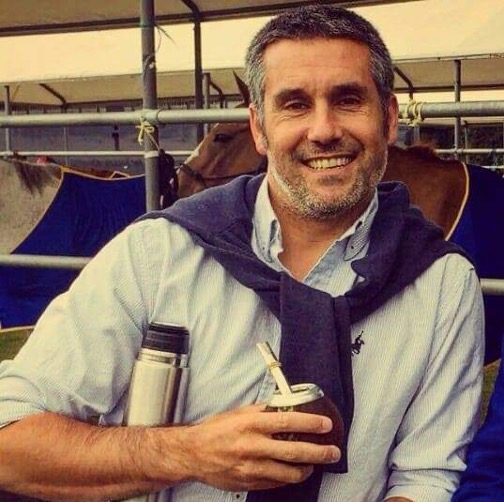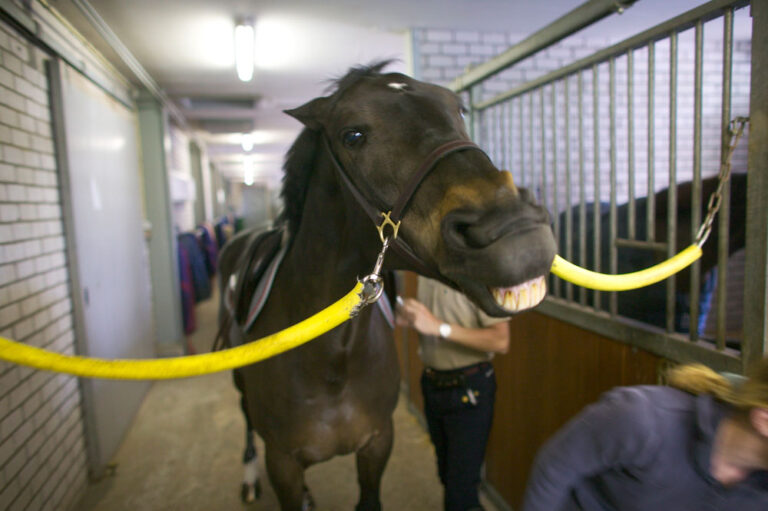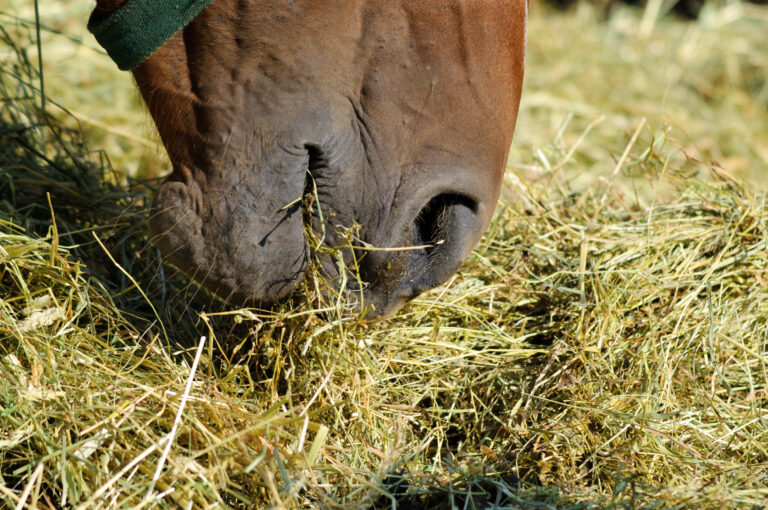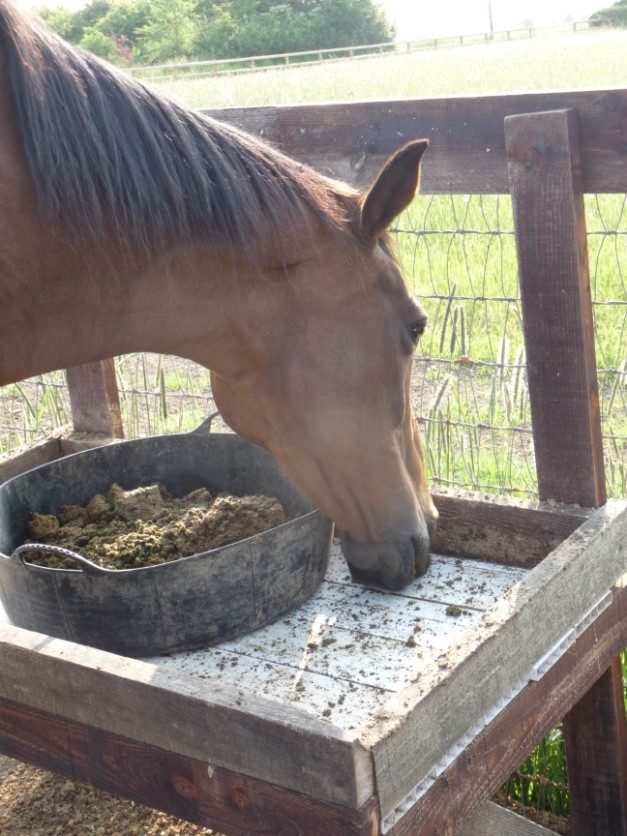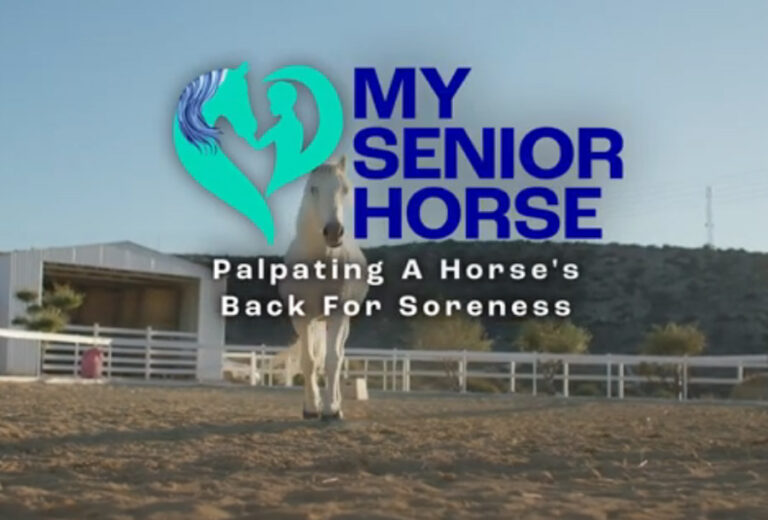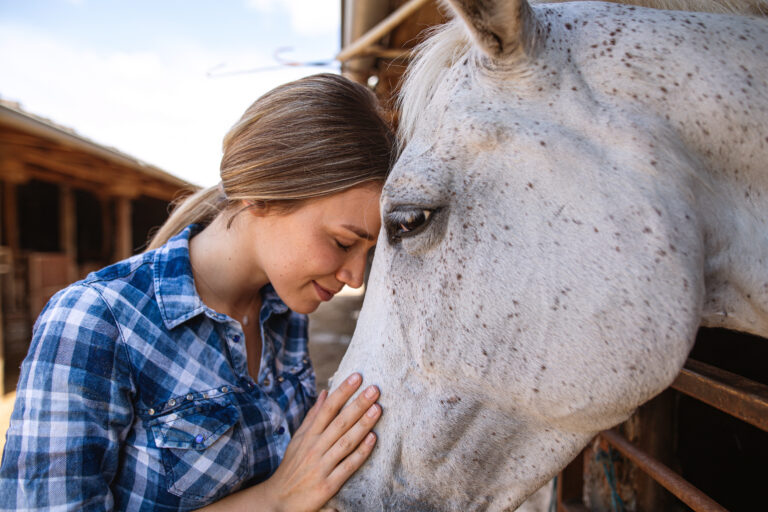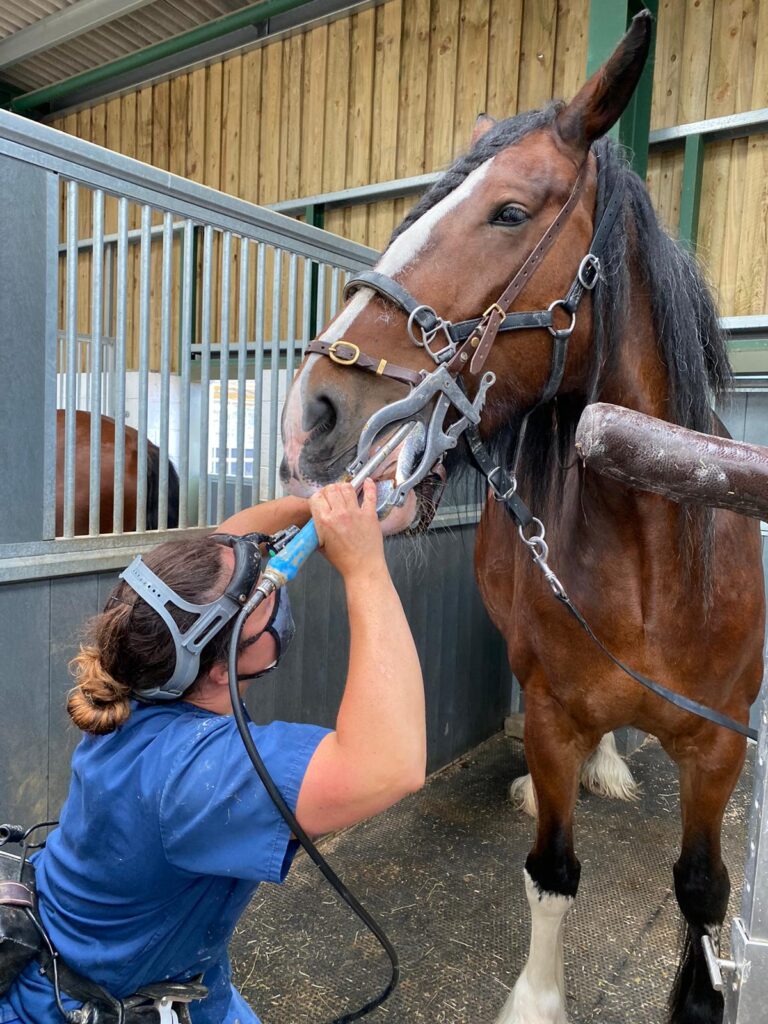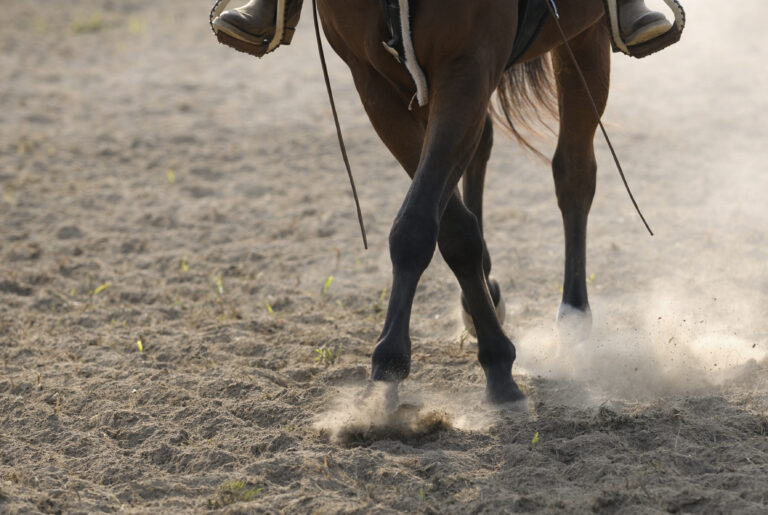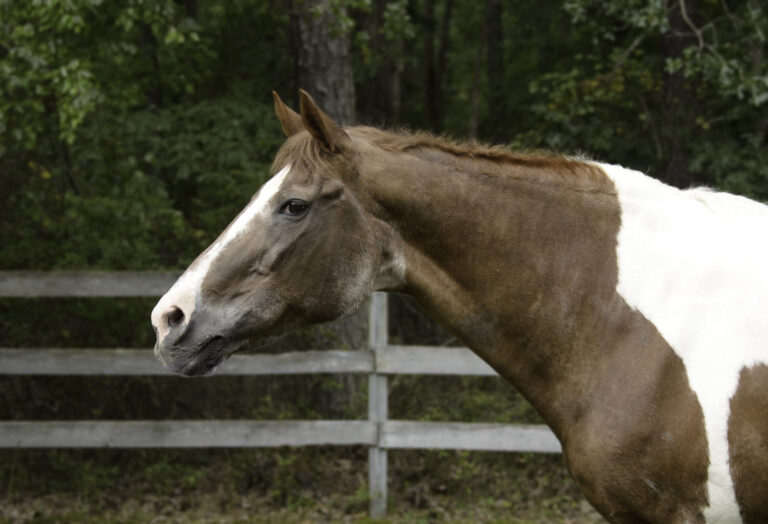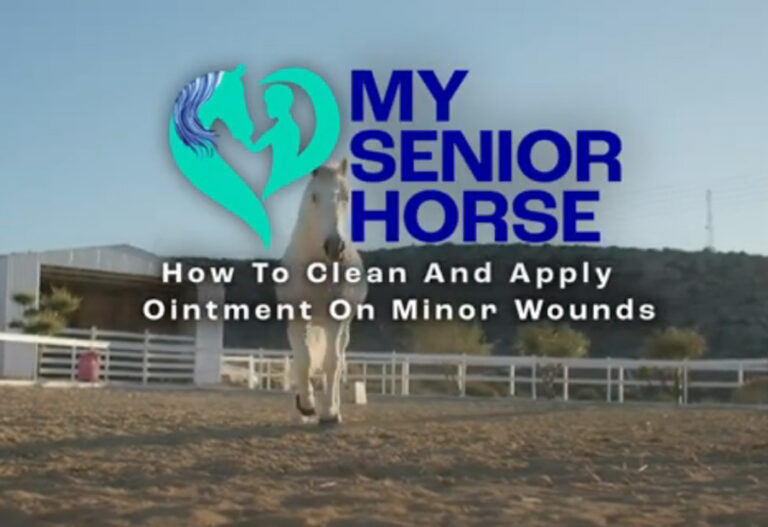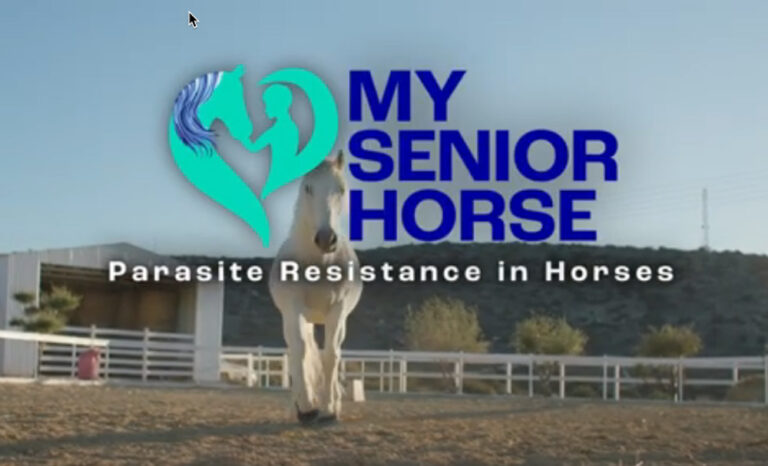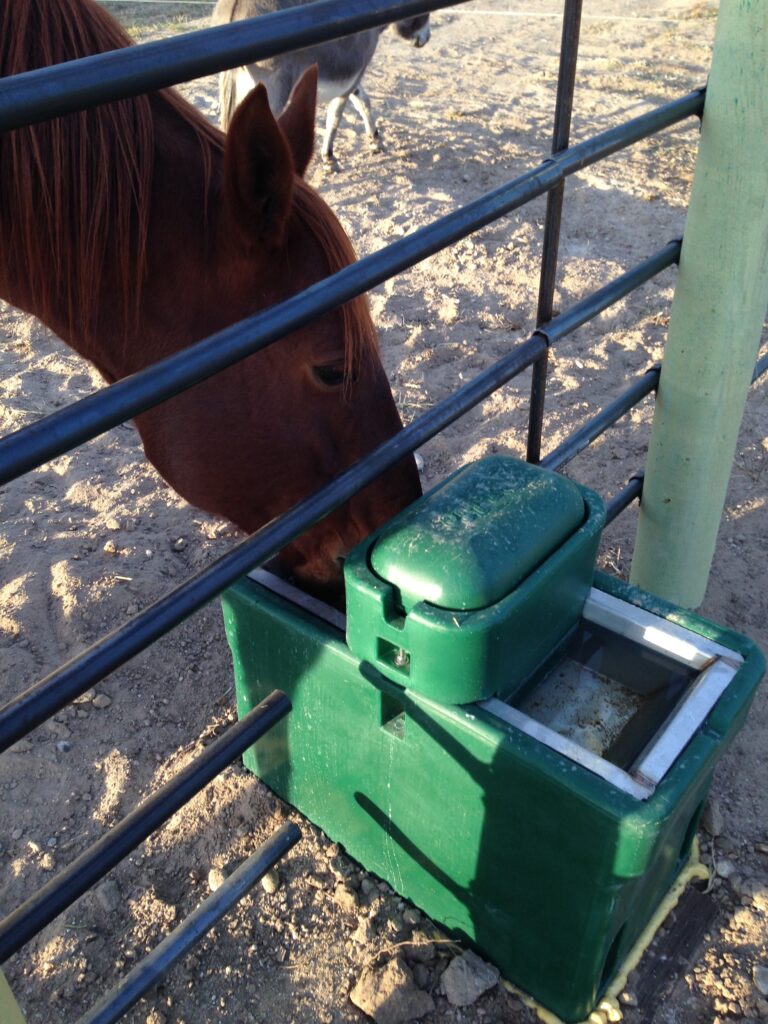What can I do if my senior horse has a loss of appetite? To answer this question, it is obviously essential to pinpoint why your horse has lost its appetite.
Appetite in horses (similar to other mammals) is strictly controlled. This is mainly done by a several hormones acting on parts of the brain. Any disruption to many normal processes, including those affecting physical and mental health, can lead to a change in appetite. A change in appetite or the way your horse approaches and chews its feed might be the first indication of a developing problem.
Senior Horse Appetite
For older horses in particular, various social and behavioural problems can result in appetite issues. Those can include the loss of a companion, a change in their environment, or even who is looking after them.
Poor-quality feed or forage or extreme environmental temperatures are amongst other possible non-clinical causes.
Causes of Appetite Loss
Some of the most common clinical causes of loss of appetite in senior horses are dental problems, conditions that cause fever, and chronic pain (such as arthritis). However, there are many other diseases and conditions that can be associated with a loss of appetite.
In addition, oral medications can sometimes result in a reduction in palatability and consequent loss of appetite. When adding medicines to your horse’s diet, always discuss with your veterinarian how to introduce them to the medication. Also talk about what to do if your horse refuses to eat some or all of the feed with medicines. This is important both for the treatment plan as well as your horse’s nutritional health.
Some of the above potential reasons you might be able to recognise and solve yourself, but others will require help from your veterinarian.
Tips on Observing Your Horse
The other clinical signs your horse is showing will dictate how urgently you need your veterinarian to come and visit. You might want to note:
- How does your horse approach its food?
- Is the horse behaving normally?
- Is the horse eating normally?
- Did you observe any quidding (term used for when horses drop feed from their mouths while they are chewing or leave balls of partially chewed hay or food behind in their feed)?
- Does your horse have food accumulated between its teeth and cheeks?
- Have the teeth recently been checked by a qualified person?
Horses can tolerate a short-term reduction in feed/forage intake. But stimulating feed consumption can be helpful in preventing further complications associated with more severe or long-term reduction in intake.
Once the reason behind the appetite loss has been identified, devising a management and treatment plan with your veterinarian is crucial. Monitoring exactly how much your horse eats and how it eats can be very helpful.
Stimulating Your Horse’s Appetite
There are certain steps you can take that might help stimulate your horse’s appetite. However, which of these to consider for your horse will obviously depend on the background cause. For example, if your horse has issues with chewing, certain feeds and forages might not be appropriate (Editor’s note: See Tips On Feeding Older Horses with Dental Issues.)
Here are some things to look at to ensure your horse eats well.
- Feed Quality: Make sure that you select high-quality feeds that are ‘in date’ and are nutritionally balanced and appealing in taste and smell for your horse. It might take some trial and error to find its preferred feed format! Trying very small amounts of different feeds might help. Always remember to make bigger changes slowly and to ensure that the nutrient content and make-up of the final ration is suitable for your horse, its needs, and clinical situation. Make sure that you store feeds appropriately in cool, dry conditions, and thoroughly clean out feed storage units between use.
- Forage hygiene and quality: This takes in both the physical and sensory characteristics as well as chemical analysis (forage testing) of a feed.
- The storage place for forage should be evaluated. It is essential the feed be in a dry and ideally cool environment.Sensory evaluation should be performed. Consider various aspects, including the stage of maturity of forage (early stage, full head, and/or seed stage and whether it is suitable for your horse and/or might be affecting palatability), leafiness (leaf to stem ratio), colour of the forage (which might range from bright green to dark brown or black when rain or heat damaged and therefore might not be palatable or suitable), odour and condition (smells good and fresh or mouldy and/or with dust contamination), and whether there is any unwanted foreign material present (weeds and contaminants in the hay). Regarding hay hygiene (e.g., presence of mould and yeasts), unfortunately there might be no obvious signs of poor hygienic quality. In case of any concern, it is recommended to submit a hay sample to be tested for mould spores. Hay can be steamed. If done correctly, the high temperature can help reduce some contaminants.
- Sometimes it can be helpful to undertake a chemical evaluation (nutritional analysis) to determine the nutritional composition of forage. The submission of a proper sample and evaluation of the results from the analysis should be discussed with your veterinarian or equine nutritionist to adapt the diet if necessary.
- Use of ‘Doctor Green:’ Unless contraindicated for veterinary reasons, allowing access to fresh grass, even small amounts, can be very helpful for some animals. How long and what type of grass is best will depend on the individual animal.
- Variety: For some animals, it might help to offer small amounts of different hay types and stages of maturity. Surprisingly, some horses will choose to nibble on a more mature hay whereas others might choose the most immature type. Sometimes this is just enough to start them eating again. Then you can return them to their original forages. For other horses, you might need to change to the new forage preference.
- Flavorful additions: Topdressing with flavours could enhance the appeal of your horse’s feed. However, some might prefer flavours such as ginger or fenugreek and others mint or apple. If there are no contraindications, incorporating succulents such as carrots or apples can be helpful in stimulating appetite. Make sure they are presented appropriately. Molasses-based supplements can also add sweetness and might be well received by some horses that are off their feed. However, the addition of sugars and starch in the senior horse diet might not be advisable and can lead to other undesirable health problems.
- Feed location and position: It is important to evaluate the position of the food, specifically if the horse has arthritis (e.g., in the neck). The meal could perhaps be offered in a raised platform approximately at the chest level to avoid the horse having to put its head down to eat. In such cases, the water bucket should be also raised to facilitate the access. This way the horse can access the food and water in a less painful way. A flat and unpoached (not eroded) field also should be considered if horses have arthritis.
- Social dynamics: Pay attention to your horse’s social interactions. Changes in herd dynamics or the loss of a companion can impact appetite. Particularly in the case of donkeys, separation from the companion is well recognize as having detrimental effects on their health and appetite.
- Think about whether there could be beneficial changes in their social group
- And/or consider how you could adjust the feeding management to accommodate your individual’s needs, ensuring it has ample time and space to eat whilst avoiding competition (although for some animals having their companion nearby might help encourage them to eat). This might require you to develop separate areas for your horse where they can be fed, then returned to their group.
- Water intake: Provide clean, fresh water at all times to encourage adequate hydration. This is essential for maintaining appetite and overall health. Some individuals are reluctant to drink from certain water sources and others might not drink water that is particularly hot or cold.
- Supplementation: In healthy horses, the various B vitamins are normally produced by the large intestine microbial population. Under certain circumstances, including issues with the gastrointestinal tract, a horse’s production of vitamin B might not cover its requirements. That can contribute to the loss in appetite. In such cases, vitamin B supplementation might help support appetite and should be considered following discussions with your veterinarian and/or nutrition support advisor.
- Finally, continue to monitor your horse and regularly evaluate your horse’s diet to ensure it meets the animal’s nutritional requirements. Also, check exactly how much the animal is eating and \how it chews and swallows.
Final Words
By understanding the factors influencing equine appetite and implementing appropriate strategies, you should be able help your senior horse regain its appetite. Remember, collaboration with your veterinarian is key to effectively addressing any underlying health issues and promoting optimal well-being for your horse.
Further Reading
- Equine Appetite Loss. MySeniorHorse.com
- Help! My Senior Horse is Losing Weight! Dr. Nettie Liburt. MySeniorHorse.com
- Dr. Nicolas C. Galinelli author bio. MySeniorHorse.com
-
Nicolas C. Galinelli, DVM, PhD Candidate, is a lecturer at the Melbourne Veterinary School, University of Melbourne. He is a former resident of the European College of Veterinary and Comparative Nutrition (ECVCN) and a member of the European Society of Veterinary and Comparative Nutrition (ESVCN).View all posts

